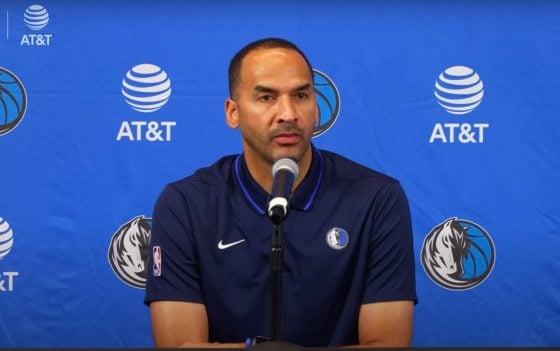Sometimes you win because you played your best. Other times you win because your opponent lost the nuclear war.
The Celtics brought out the broomsticks on Monday night, finishing the season sweep of the Raptors in a pretty run-of-the-mill performance. The Celtics shot an underwhelming 40 percent from the field, a perfectly-whelming 41 percent from deep, and an overwhelming 92 percent from the free throw line.
That’s a pretty standard spread of whelming, and the game felt like a regular old close-but-not-too-close NBA basketball game. The Celtics won, which was the expected result. There were a few flashy plays and a few big shots, but nothing decade-defining.
Since the game aired at the same time as a couple of NFL playoff games, I doubt many outside of the Boston and Toronto faithful even tuned in, meaning most will check the box score and see that the Celtics won by a respectable nine points and move on with their lives.
But the real box score enthusiasts will scroll down to check each team’s shooting spreads, before gasping, recoiling in horror, and then potentially vomiting upon discovering the Raptors’ three-point shooting mark.
12.5 percent? Twelve-point-five? As in, less than 13? On how many sho—32!? You’re telling me they went 4-32 from three? And they only lost by nine?! What in the…
That number is so underwhelming that it may not even whelm at all. It’s a completely unserious number that makes it pretty much impossible to keep up with one’s opponent, and it felt that way in real time. I personally counted five missed threes in the fourth quarter that would have changed the feel of the game entirely, yet each time the Celtics kept it at arms length.
Everyone knows basketball is a game of runs, but within those runs are events I like to call “Nuclear Threes.” These are three-point attempts that—if made—will cause a dramatic shift in the energy in the arena. It’s hard to quantify, but you can usually feel the ramifications of a shot in your stomach when it’s in the air.
If your stomach is still, it’s a normal three, nothing to write home about. A couple of butterflies means it’s a pretty big shot, but a full clench of your abdominal muscles means it’s probably a Nuclear Three. Here is an explosive example:
Imagine if that one had gone down. The roof would have fallen off the Scotiabank Arena, and Immanuel Quickley would have done his little skipping dance as the Celtics were forced to call a timeout. Instead, this happened one play later:
This is basically the NBA equivalent of nuclear war, as a missed Nuclear Three turned into a counter-Nuclear-Three on the other end. In the blink of an eye, the Raptors saw their comeback go up in a mushroom cloud.
Had Quickley put down the first one, the Celtics would have run the next possession on DEFCON 1. Instead, they could look for the dagger, converting a Derrick White rainbow corner three to go from throwing the game to game over.
This completely-made-up stat is part of my ongoing effort to make NBA stats more fun. To a neutral onlooker, it may seem like the Celtics were merely gifted a win by abysmal shooting numbers. That certainly happened, but there’s a deeper emotional, and potentially atomic, layer to it.
The NBA is a “make-or-miss” league, but there’s a whole world of reasons why professional basketball players actually make and miss shots. Stress and pressure are certainly factors, which peak during these nuclear events.
Urgency is another such factor. The Raptors may have been unlucky at the beginning, but their continued struggles show a team that felt like they had to make up for something. The Celtics fed on this urgency to control the pace of the game, and effectively manipulated a tricky fourth quarter to come away with a road win.
At the end of the day, yes, it is pretty darn difficult to win a basketball game when you miss 28 threes. Why it was so close is another story, but the Celtics hit the big ones when they counted, leaving the Raptors in the dust. Or turning them into dust, depending on how morbid you want to make this image. Your call.






